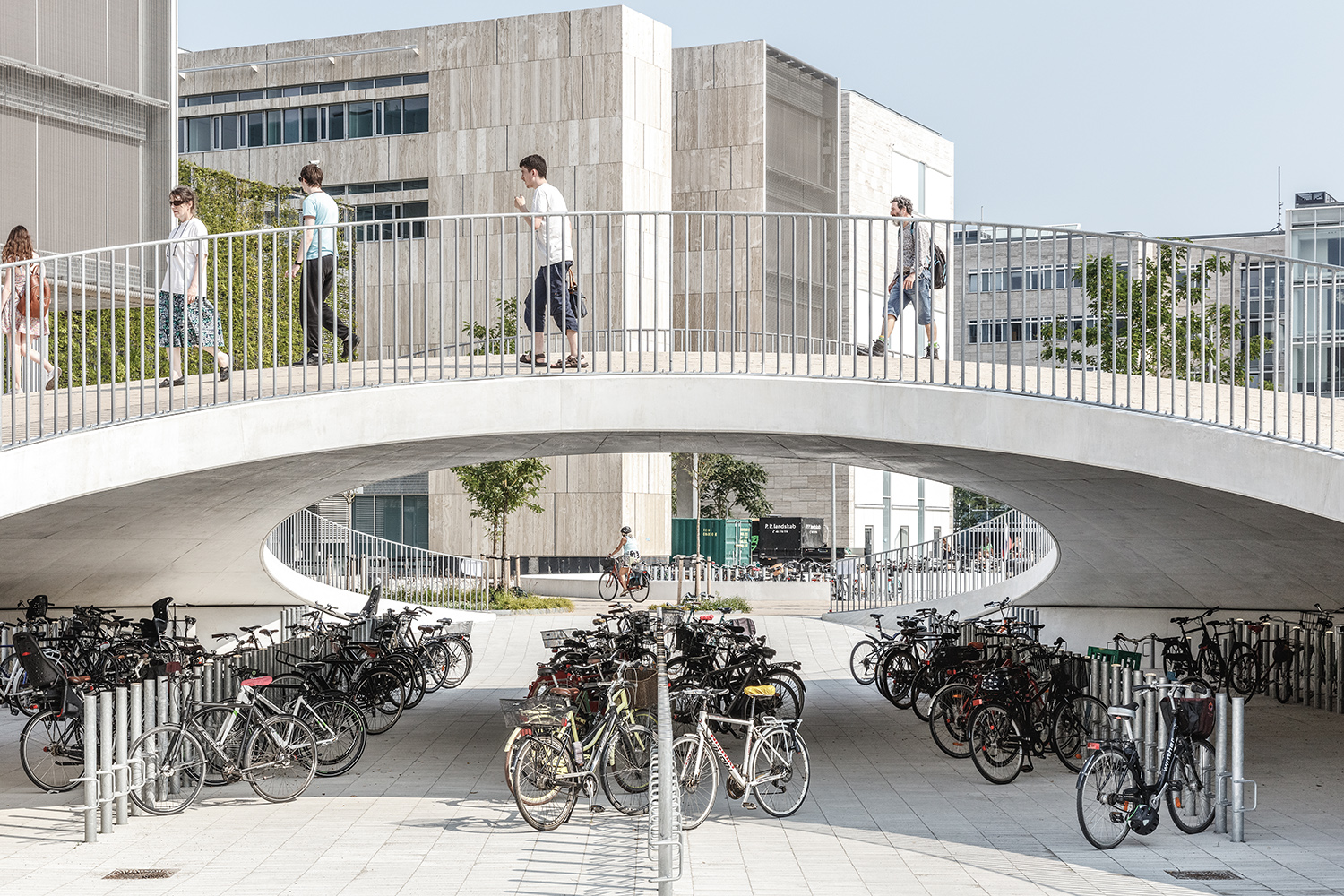28 x Urban Development in Denmark Exhibition and discussion on the livable city
Urban development moves. Citizens, planners, politicians. Cities need to prepare for the future, adapt to climate change and become more sustainable. But how do you make the city liveable for everyone? The Danish Embassy’s touring exhibition “Lebenswerte Stadt – 28 x Stadtentwicklung in Dänemark“ (Livable City – 28 x Urban Development in Denmark) is on show at Technische Universität Braunschweig until 8 November. At the closing event, Lisbet Volters and Dr. Katrine Østergaard Bang will report on planning practice.
Denmark is a pioneer and role model in sustainable urban development. It is not only Copenhagen that provides an impressive example of sustainable urban development, with a clearly formulated strategy to achieve climate neutrality and its implementation through improved energy efficiency standards in buildings, mobility transformation and local renewable energy production. A new planning law has paved the way for climate adaptation, biodiversity and environmental protection. This is always linked to the goal of spatial planning with quality of life as a key factor.
Examples of successful urban development
The Danish Embassy’s touring exhibition “Livable City – 28 x Urban Development in Denmark” is showing examples of successful and forward-looking urban development in Denmark until 8 November in the foyer of the Architekturhochhaus in Braunschweig’s Mühlenpfordtstraße and in the foyer of the Okerhochhaus in Pockelsstraße. The focus is on projects in small and medium-sized towns. The focus is on the transformation of existing buildings, urban corrections, the revitalisation of neighbourhoods and the recycling and reuse of buildings.
The special exhibition zeropluscity:copenhagen, which is part of the exhibition, also offers insights into the results of a seminar with students from the SpACE Lab at the ISU – Institute for Sustainable Urbanism at TU Braunschweig. Here, the students researched and evaluated the multi-layered strategies for achieving climate neutrality in Copenhagen and are now showing their results. The architectural and spatial implementation was of particular interest to the future architects and urban planners.
At the exhibition’s finissage on 7 November, the SpACE Lab at ISU will welcome two guests from Denmark, Lisbet Wolters, city architect in Vejles and director of the Danish Urban Planning Laboratory, and Dr. Katrine Østergaard Bang (Danish Association of Architects), who will talk about planning and architectural urban planning practice in their country. A joint discussion will also reflect on the challenges and potential of cities and communities in Germany.
About the two speakers:
Lisbet Wolters is the City Architect for the City of Vejle and as such responsible for the planning and development of architecture, urban and landscape spaces in Vejle in dialogue with politicians, project developers and citizens. She is the director of the Urban Planning Laboratory of Denmark, where urban development projects, visions and plans are developed and discussed.
Previously, Lisbet Wolters was a senior architect at Årstiderne Arkitekter from 1999 to 2015. She is a member of the Special Building Commission, which advises the Danish Ministry of Culture on building design and heritage protection. She is also a member of the nomination committee for the Renover Prize 2021, which recognises the best transformation projects in Denmark.
Dr. Katrine Østergaard Bang graduated as an architect and planner from the Arkitektskolen Aarhus in 2000. From 2002 to 2018, she taught and researched at the Royal Danish Academy of Fine Arts, School of Architecture in Copenhagen, where she also completed her dissertation on large-scale projects in the context of strategic planning. Since 2018, Katrine Østergaard Bang has worked at the Danish Chamber of Architects as an advisor on urban planning and architectural policy, especially public planning at the municipal level.
Professor Vanessa Miriam Carlow, spokesperson for the research focus “Future City” at TU Braunschweig and director of the Institute for Sustainable Urbanism, will lead the evening.
Lebenswerte Stadt – 28 x Stadtentwicklung in Dänemark (Liveable City – 28 x Urban Development in Denmark)
Until 8 November in the foyer of the Architekturhochhaus, Mühlenpfordtstr. 23, 381016 Braunschweig, and in the foyer of the Okerhochhaus, Pockelsstr. 3, 38106 Braunschweig.
Admission is free of charge.
Finissage
7 November, 18 h, foyer, Mühlenpfordtstr. 23, 381016 Braunschweig

